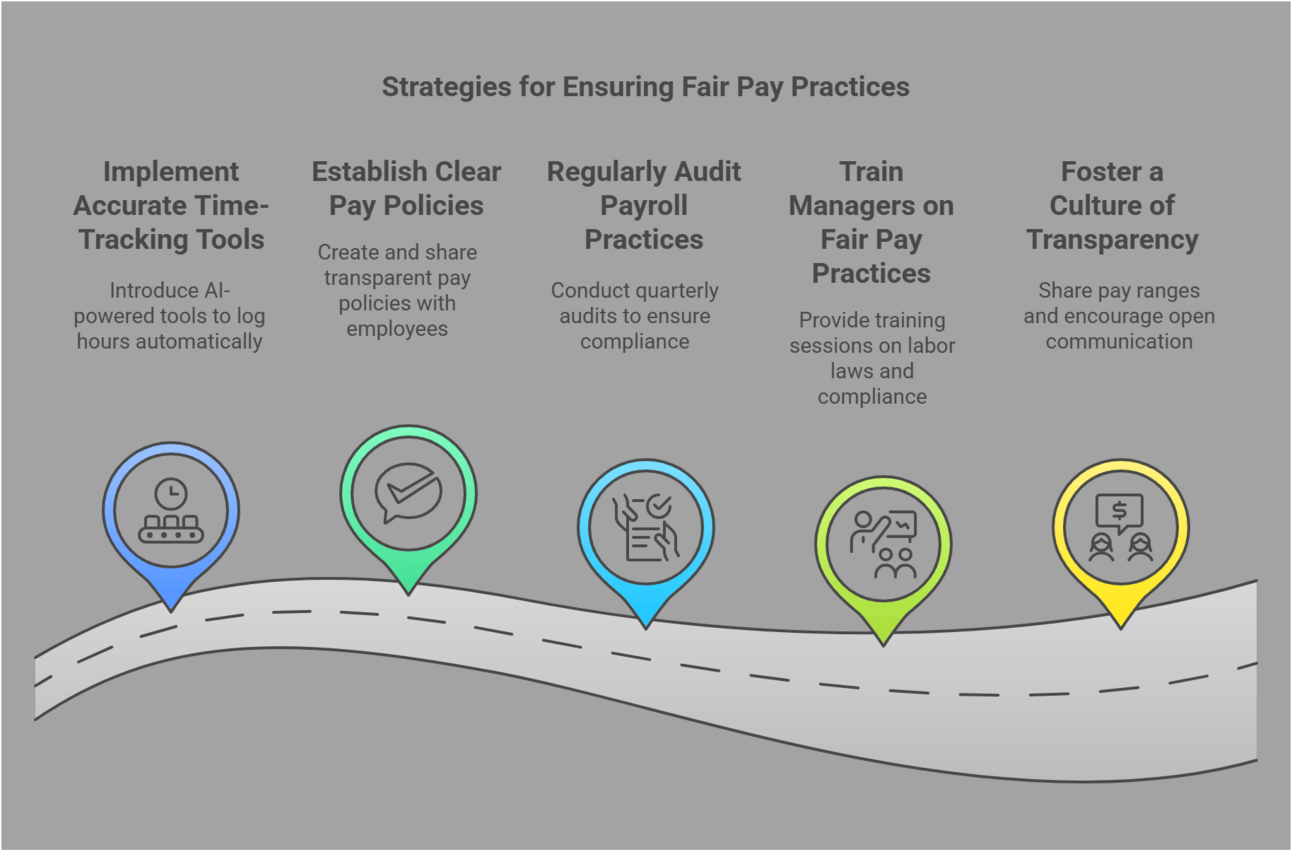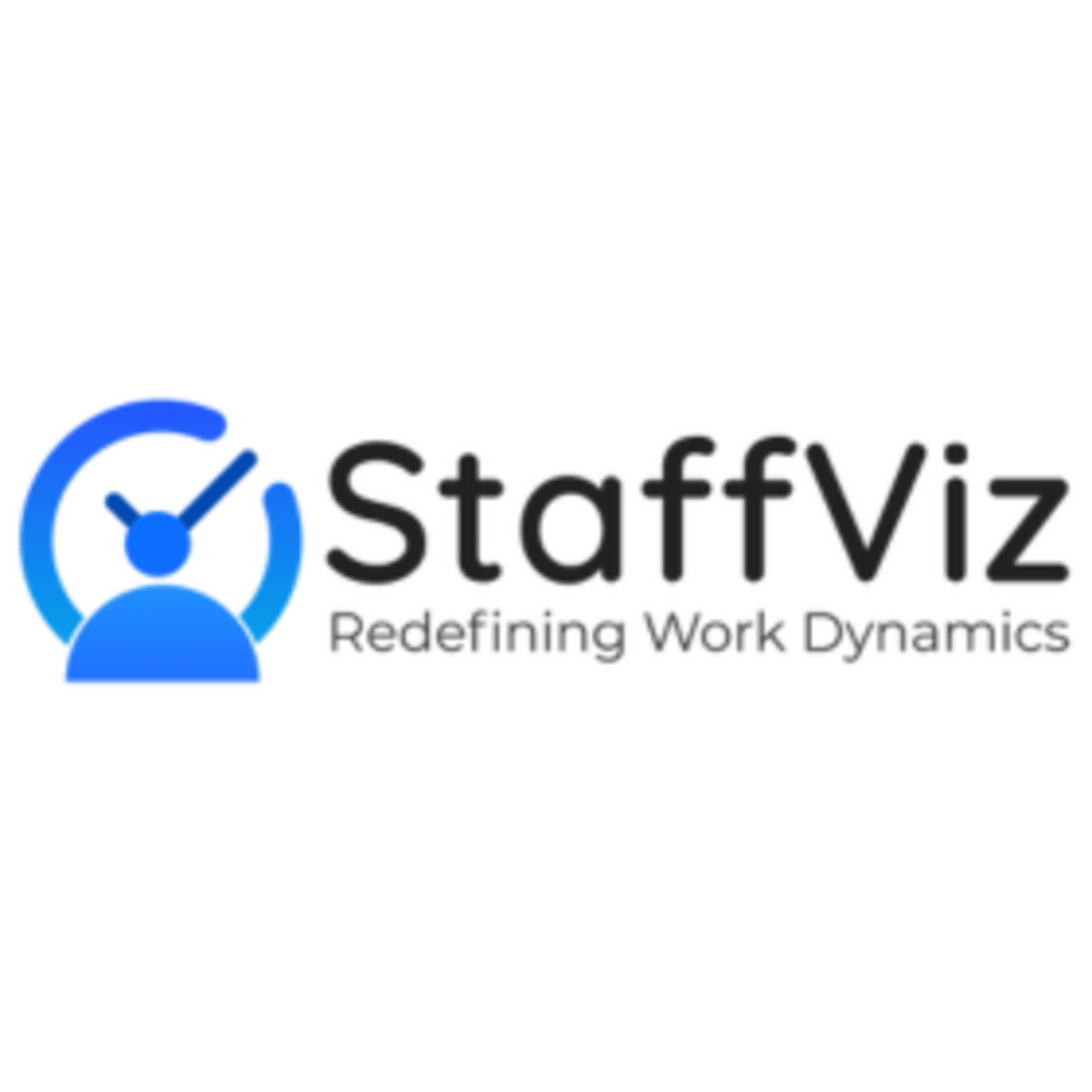The shift to hybrid work has transformed how businesses operate, but it has also introduced new challenges—especially when it comes to ensuring fair pay practices. For HR professionals in small and medium enterprises (SMEs), maintaining transparency, compliance, and employee trust in a hybrid work environment is critical. This article dives into actionable strategies to ensure fair pay practices, benefiting both HR managers and employees seeking better workplace standards.
The Challenge: Fair Pay in a Hybrid World
Hybrid work environments blur the lines between in-office and remote work, making it harder to track hours, overtime, and productivity. This can lead to:
Unintentional wage violations (e.g., unpaid overtime).
Payroll errors due to inconsistent time tracking.
Employee dissatisfaction and mistrust.
For SMEs, these issues can result in legal risks, damaged reputations, and lost talent.
5 Strategies to Ensure Fair Pay Practices

1. Implement Accurate Time-Tracking Tools
Why It Matters:
Hybrid work makes it difficult to manually track hours, especially for remote employees. Without accurate data, underpayment or overpayment can occur.
Solution:
Use AI-powered time-tracking tools like StaffViz to log hours automatically.
Ensure the tool integrates with payroll systems to streamline payments.
Example:
A marketing agency reduced payroll errors by 30% after implementing StaffViz’s time-tracking feature, ensuring employees were paid accurately for overtime and remote work.
2. Establish Clear Pay Policies
Why It Matters:
Ambiguity around pay policies can lead to misunderstandings and disputes.
Solution:
Create a transparent pay policy that outlines:
Hourly rates vs. salaried pay.
Overtime rules and compensation.
Payment schedules and methods.
Share this policy with all employees and make it easily accessible.
Pro Tip:
Use tools like Google Workspace or Notion to store and share policies digitally.
3. Regularly Audit Payroll Practices
Why It Matters:
Payroll errors can go unnoticed, leading to wage violations over time.
Solution:
Conduct quarterly payroll audits to ensure compliance with labor laws.
Use tools like StaffViz to generate reports on hours worked, overtime, and pay discrepancies.
Example:
An SME discovered through a payroll audit that remote employees were consistently underpaid for overtime. By addressing this, they improved employee trust and avoided legal penalties.
4. Train Managers on Fair Pay Practices
Why It Matters:
Managers play a key role in ensuring fair pay, but they may lack awareness of labor laws or best practices.
Solution:
Provide training sessions on:
Labor laws and compliance requirements.
How to use time-tracking tools effectively.
Recognizing and preventing wage theft.
Encourage managers to communicate openly with employees about pay-related concerns.
5. Foster a Culture of Transparency
Why It Matters:
Employees are more likely to trust their employers when pay practices are transparent and fair.
Solution:
Share pay ranges for different roles (where appropriate).
Encourage employees to report pay-related issues without fear of retaliation.
Use tools like StaffViz to provide employees with access to their own time-tracking data.
Example:
A tech startup introduced transparency by sharing pay ranges and using StaffViz to let employees view their logged hours. This led to a 20% increase in employee satisfaction.
Tools to Support Fair Pay Practices
StaffViz: For accurate time tracking, payroll integration, and real-time insights.
Gusto or BambooHR: For streamlined payroll processing and compliance.
Trello or Asana: For tracking tasks and ensuring employees are compensated for all work.
Common Fears and How to Address Them
Fear #1: “Employees will feel micromanaged with time tracking.”
Rebuttal: Position time tracking as a tool for fairness, not surveillance. Emphasize that it ensures they’re paid accurately for their work.
Fear #2: “Pay transparency will lead to conflicts.”
Rebuttal: Start small by sharing pay ranges for roles, not individual salaries. Use transparency to build trust, not competition.
First Steps for HR Professionals
Audit Your Current Pay Practices: Identify gaps and areas for improvement.
Invest in a Time-Tracking Tool: Start with a free trial of StaffViz to see how it fits your needs.
Communicate with Employees: Explain the changes you’re making and how they benefit everyone.
Conclusion
Fair pay practices are non-negotiable in today’s hybrid work environment. By leveraging tools like StaffViz, establishing clear policies, and fostering transparency, HR professionals can ensure compliance, build trust, and create a workplace where employees feel valued.
For employees, these practices mean fair compensation, better work-life balance, and a more positive workplace culture. Start today—your team’s success depends on it.
Government and Compliance Resources:
U.S. Department of Labor (https://www.dol.gov) – For wage and hour laws.
Fair Work Ombudsman (Australia) (https://www.fairwork.gov.au) – For fair pay practices.
California Labor Commissioner’s Office (https://www.dir.ca.gov/dlse) – For wage theft prevention resources.

